Scientists
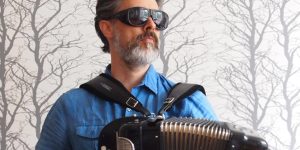
Machine folk music school
Bob L. T. Sturm (US)
“Machine folk music school” is led by Bob L. T. Sturm (US) via video conference. He teaches an AI-generated folk tune in the aural tradition. All musical instruments are welcome. (Come with your instrument!)
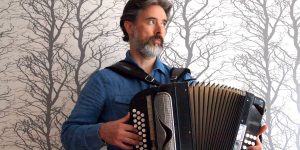
Folk the Algorithms
Bob L. T. Sturm (US)
Sturm builds, learns from and collaborates with AI systems trained on transcriptions of traditional music. These systems effectively generate an unlimited supply of new tunes imitating traditional ones. Sometimes these tunes are perfect as they are, and sometimes they are imperfect in interesting ways, but they all lack the credentials of “real” traditional tunes.
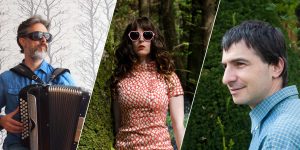
Music as Experience in an age of Artificial Intelligence and Computational Creativity
Kingston University and Durham University (UK), New York University (US), Hochschule für Musik und Darstellende Kunst, Stuttgart (DE), University of Music and Performing Arts of Vienna (AT), KTH Stockholm (SE)
This discussion will focus on aspects of working with AI as artists, and also wider aspects about implications of the technology.
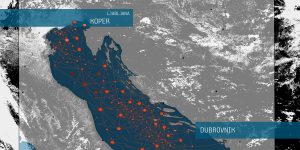
Journey: Adriatic Garden | aqua_forensic 2.0
Adriatic Garden | aqua_forensic 2.0 connects two places by the Adriatic Sea: Dubrovnik (HR) and Koper (SI) and gives special attention to our commitment to the values of care, compassion, environmental justice, action-taking and cooperation with the Adriatic Sea and its creatures. The project framework is the aqua_forensic, an ongoing art and science research method developed by Robertina Šebjanič (SI) and Gjino Šutić (HR), which sheds light on the presence of invisible anthropogenic chemical pollutants in the water environment.
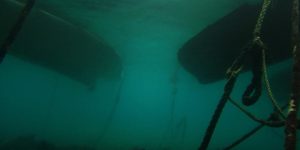
The SonoAdriatic tales
The Adriatic Garden will host a wide array of activities: exhibitions, installations, panel discussions, workshops, and much more, while enabling audiences to immerse themselves in the underwater world of the sea. Art, science and citizen science coalesce within the framework of Adriatic Garden | aqua_forensic 2.0, opening up a wider discussion about our solidarity and empathy with waters beyond human perception. Within the project, we would like to give special attention to the values of care, compassion, environmental justice, action-taking and cooperation with the Adriatic sea and its creatures.

The Aqua_forensic Workshops at the Adriatic Garden
With it, we wish to help illuminate the human impact on our waters at the micro / macro level and provide a guideline to the fascinating world of aquatic flora, fauna and minerals and its plight. The aqua_forensic project is known for its special devotion and affinity to participatory engagement through workshops. We all have the capacity to pause, listen, observe and recognize the diversity and quality of the present environment. The aqua_forensic aims to encourage global and local audiences to familiarize themselves with the topics of water pollution and climate change, as well as actively engage in community work on these issues through citizen science oriented workshops. Scientific environments provide the sophisticated tools needed to undertake analysis and build predictive ecological models.

The Sonic Adriatic Garden
In this 40-minute-long program, we will present fragments of compositions by selected artists, which showcase the above or underwater sonic scapes of the Adriatic Sea. All of the featured sound works can be listened to in their entirety within the sonoAdriatic tales program. The Sonic Adriatic Garden is a special part of the project, devoted to the sonic wilderness of the Adriatic Sea, which offers the audiences a chance to immerse themselves into under/above water soundscapes of the region. Audiences are invited to open their ears and listen to the vast array of sounds, among them the sound mapping of the Korčula Island, an artist’s reflection on the tides, the circulation of the water body, and the melodies of diving in submerged caves of the Quarner bay area. Some of the tales deal with underwater noise pollution and showcase the human sonic impact on the underwater habitat and marine life, as well as the presence of morphologies hidden in the palimpsests of memory of the places once heavily exploited in the name of urbanization, tourism and industrial progress that marks the Adriatic Sea

The “Aquaformations” Roundtable
The round table Aquaformations, (International S.A.I.N.T. Caffe) which is part of the Adriatic Garden project, will extensively focus on the values the project aims to stress, namely care, kindness, compassion, environmental justice, action-taking, and cooperation with the Adriatic Sea and its creatures. In discussion with local and international experts and citizens, we will delve into the anthropo-socio-technological relationship with the sea, describe the impact our enterprises have on waters, as well as address the issues we have to tackle to achieve sustainable collaboration among researchers, artists, institutions and citizens, who work in the field of maritime research and conservation. We will also point out how the collaborative endeavors of artists, scientists, citizen scientists and active individuals have the potential to provide excellent support to their local communities. We will host experts on environmental law, biodiversity, marine science, artists addressing ecological / environmental topics, experts working in the commercial sector, educators and many more.

The “Aqua_Forensic” Exhibitions
Aqua_forensic is an artwork that will be exhibited at various locations during the Ars Electronica 2020: This includes the group exhibition Living Objects at the City Art Gallery in Ljubljana, Slovenia.
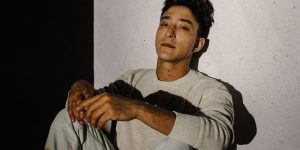
Science Gallery Detroit Presents Shigeto
Shigeto
Artists take on pseudonyms for a multitude of reasons, but in Zach Saginaw’s case those reasons run deeper than most. Shigeto is Zach’s middle name as well as his grandfather’s name: a tribute to the Japanese branch of Zach’s family tree. Shigeto also means “to grow bigger”—appropriate, given Zach’s premature birthweight of less than a pound. Today, Shigeto stands for Zach’s vividly beautiful electronic music. Beat-driven, but given to richly textured sound design; rhythmically fractured, but melodically sumptuous, Shigeto’s music is a bridge between the past and present, bringing the artist face to face with a creative legacy that spans decades.
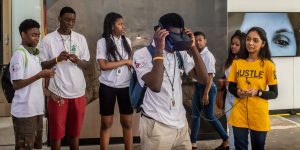
Curators’ Conversation
Ralph Borland, Cezanne Charles, Olga Stella, Antajuan Scott, Mark Sullivan, Devon Akmon
Take a look into the process of planning our third exhibition FUTURE PRESENT and hear from the panel of curators to get an overarching view of our subthemes. We will also answer questions from the Science Gallery Community.
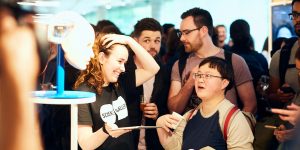
THE INVISIBLE REMAINS OF CARROWKEEL
An exploration of ancient genetics and the history of neolithic tombs as featured in NATURE in June 2020 by Trinity College Dublin geneticist Lara Cassidy (IE)
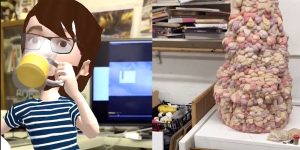
INVISIBLE Studio visits with Andy Holden and Thijs Biersteker
Andy Holden (UK) and Thijs Biersteker (NL)
Join us for a behind-the-scenes studio visit with INVISIBLE artists Andy Holden (UK) (INVISIBLE / DARK MATTER) and Thijs Biersteker (NL) (INVISIBLE - Gravitational lensing)
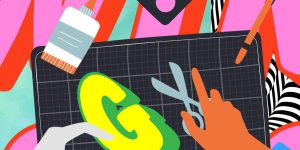
HOLD ON TO THE GOOD THINGS, IMAGINE THE BEST THINGS
An opportunity to reflect on COVID-19 and its effects on society, and speculate on what comes next. What roles do science, technology and art play here?
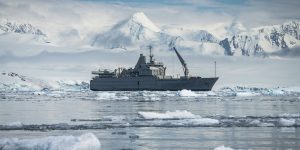
Axis - Harvesting isolation
Víctor Mazón Gardoqui (ES/DE)
7-day trip from Punta Arenas, 32-hour waiting in front of the Yelcho scientific station Waiting on the high seas for a favorable climatic window to continue sailing, supposes a dislocation of space and time. The parallel 66° 33′ 46″ passes in front of us. A still image exposed to 24 hours of light, on a 360° horizon. The staticity of the sea in the bay of Yelcho. An abrupt and mountainous environment added to the roar of the katabatic winds generates a rupture of perception in scale and distance. The wait. Advancing a small way to the base. Space for registration. The devices -through their sensors- capture the sense of place. A viewing angle of 46° in contrast with the spherical and immersive recording of the hertziosphere, where the alterity of bodies and anthropogenic frequencies in contrast with the autochthonous ones.
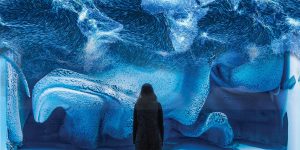
DïaloG Livestream
Refik Anadol (TR) and Maurice Benayoun (FR)
DïaloG is an urban media art installation developed by Maurice Benayoun (MoBen/CityU HK) and Refik Anadol: In the public space (L’Hospitalet de Llobregat, Spain) two “living” entities face each other. They don’t look like the living beings we know. They don’t speak any language we know. They are aliens, strangers, immigrants. Facing each other they gradually mutate.

DïaloG
Refik Anadol (TR) and Maurice Benayoun (FR)
DïaloG is an urban media art installation developed by Maurice Benayoun (MoBen/CityU HK) and Refik Anadol: In the public space (L’Hospitalet de Llobregat, Spain) two “living” entities face each other. They don’t look like the living beings we know. They don’t speak any language we know. They are aliens, strangers, immigrants. Facing each other they gradually mutate.
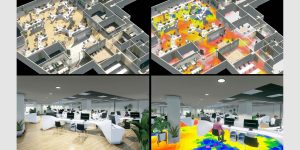
MindSpaces platform
Centre for Research and Technology Hellas (CERTH) (GR), Maastricht University (NL)
The MindSpaces platform, encompassing the technologies of the project, will be demonstrated, showing how to design solutions for both indoor and outdoor environments using data from emotional, behavioral and discourse analysis.
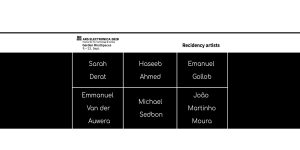
MindSpaces Residency Artists
Haseeb Ahmed (US), Sarah Derat (FR), Emanuel Gollob (AT), Emmanuel Van der Auwera (BE), João Martinho Moura (PT), Michael Sedbon (FR)
These interviews will discuss the work of the artists throughout their MindSpaces residency. They will present their work so far and their collaboration with the technical partners of the MindSpaces consortium.
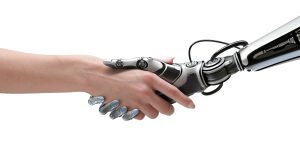
Citizens' Think-in on Artificial Intelligence
Artificial Intelligence (AI) is playing a growing role in our lives. Machine learning tools help determine the ads you see online, the news you read and the products you purchase. Every time we send a text, use a credit card or sync a wearable device we are sharing personal information about ourselves. But what are the social consequences of AI? How is our information being used? Who is setting the policies and regulation? And how can AI affect our privacy and civil liberties?


